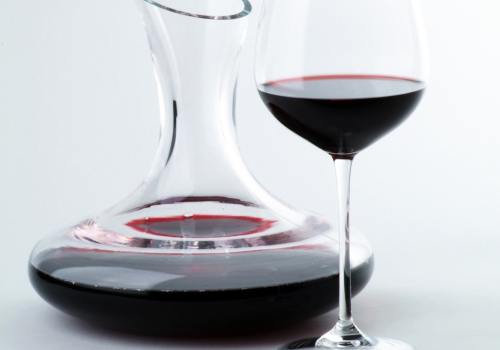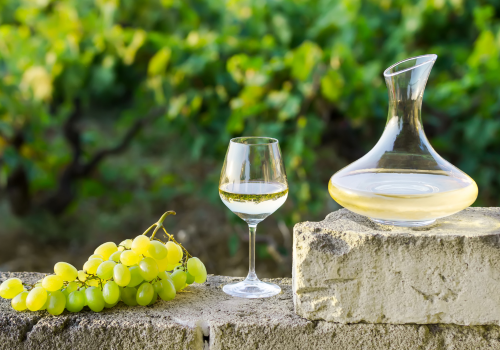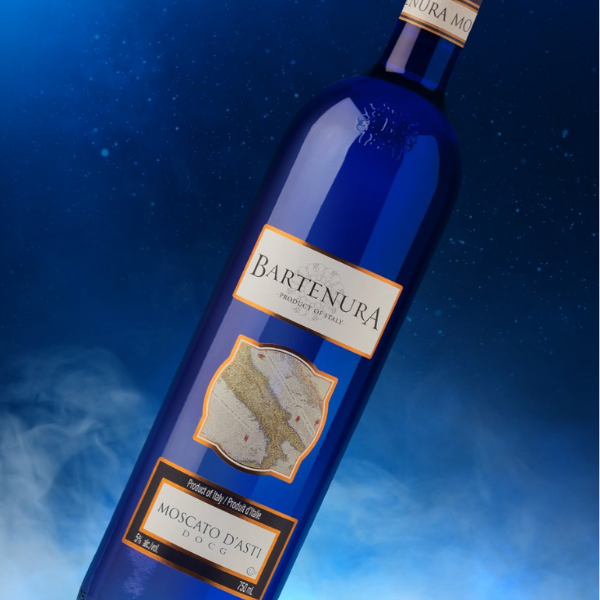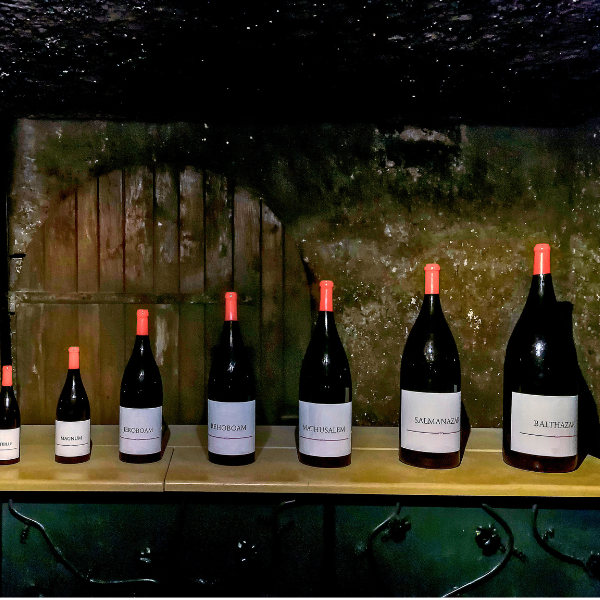Decoding Wine Decanters: What They Are and Why You Should Use Them
- Jun 8, 2023
By Keri Lawrence
The question of whether or why to decant a wine can often confuse and puzzle many. In this beginner's guide, we will explore the world of decanting and reveal the reasons why it can unlock the hidden flavors in your favorite wines.
What Is a Wine Decanter and Why Use It?
Decanters have long been associated with wine, evoking a sense of elegance and sophistication. But what exactly is a decanter, and what purpose does it serve?
A decanter is a vessel, typically made of glass or crystal, that is specifically designed to hold and serve wine. It is characterized by its unique shape, which often includes a wide base and a long, slender neck. Decanters can come in various styles and sizes, ranging from simple and understated to intricately designed works of art.
Decanters serve two primary purposes: to separate the wine from any sediment that may have formed and to allow the wine to breathe. When wine ages, it can develop sediment, consisting of tannins, pigments, and other compounds. Decanting the wine carefully separates the liquid from this sediment, ensuring a clearer and more enjoyable drinking experience.
Does a wine decanter have to be glass?


It is not necessary for a wine decanter to be made of glass, but glass decanters are commonly used and preferred by many wine enthusiasts. Glass decanters offer several advantages that make them a popular choice.
As an inert material, glass does not cause any chemical reactions in the wine that could impact flavors or aromas. Glass also allows for a clear and transparent view of the wine, allowing you to appreciate its color and clarity.
Plus, glass can easily be washed with warm water and mild soap, ensuring that no residue or odors are left behind that could impact the taste of future wines.
The Science Behind Decanting Wine
Decanting wines is not merely a matter of tradition; it has tangible benefits for both young and aged wines.
Releasing Aromas and Flavors
Wines spend a significant amount of time in bottles with limited oxygen exposure. By decanting, you increase the wine's contact with air, allowing the wine to release its aromatic compounds and making it easier to detect and appreciate the various scents and nuances. This can be particularly beneficial for complex wines that may require some time to fully express themselves.
Certain wines, especially older ones, can evolve and change in the glass over time. By decanting the wine and exposing it to oxygen, you can accelerate this process, allowing the wine to reveal its full potential more quickly.
Softening Tannins for a Smoother Taste
Tannins are compounds found in grape skins and seeds that contribute to the structure and mouthfeel of the wine. However, they can be quite firm and astringent when the wine is young. Decanting helps to mellow and soften these aggressive elements, resulting in a more balanced and enjoyable taste.
As wine is decanted and exposed to air, the tannins undergo a process known as polymerization. The tannin molecules bind together, forming larger and more complex structures. This process softens the tannins, resulting in a more approachable wine and less aggressive on the palate. The result is a smoother taste that allows the wine's other flavors to shine through.
How to Decant Wine
Decanting wine requires a touch of finesse to achieve the best results. If the wine has been stored horizontally, allow it to sit upright before opening to let sediment settle. When pouring into the decanter, keep the bottle close to the lip for control. Pour slowly, tilting slightly to avoid disturbing sediment. If sediment approaches the bottle's top, pause and let it settle. Leave a small amount of wine in the bottle to prevent sediment from entering the decanter during serving.
Does all wine need to be decanted?
Decanting is not necessary for every wine. In fact, most young, fruit-forward wines can be enjoyed straight from the bottle without decanting. However, if you have a particularly robust or tannic wine, or if you notice sediment in the bottle, decanting can significantly improve the drinking experience.
Timing Is Key: How Long Should You Decant Wine
The ideal decanting time for a wine depends on several factors, including the wine's type, age, and characteristics. While there are general guidelines, it's essential to adjust the decanting time based on your personal preferences and the specific bottle you're working with.
As a general rule, younger and more tannic wines benefit from longer decanting times, ranging from 30 minutes to a few hours. Lighter-bodied and older wines may only require a shorter decanting time, around 15 to 30 minutes. Ultimately, it is best to taste the wine periodically to determine when it has reached its optimal state.
Red wines, in particular, can greatly benefit from decanting. Let's explore the ideal decanting times for different categories of red wines:
Full-bodied Reds
Full-bodied red wines, such as Cabernet Sauvignon, Syrah, and Bordeaux blends, generally benefit from decanting for one to two hours. This allows the wine to soften its robust tannins and allows the flavors to fully develop and harmonize.
Light and Medium-Bodied Reds
Light-bodied red wines, such as Gamay and Pinot Noir, benefit from a shorter decanting period of 20 to 30 minutes. This allows the wine to breathe and reveals its delicate aromas. Medium-bodied reds, like Merlot and Tempranillo, can benefit from decanting for 20 minutes to an hour.
White Wines & Rosé Wines: Exceptions for Decanting


While white and rosé wines generally do not require decanting, there are a few exceptions to keep in mind:
Oak-Aged Whites:
White wines that have been aged in oak barrels, such as Chardonnay, may benefit from a short decanting period of around 15 minutes. This allows the flavors and aromas to integrate and showcase their full potential.
Rich and Complex Whites
Certain white wines with intense flavors and complexity, like some Viognier or Semillon wines, can benefit from gentle decanting to enhance their aromatic profiles. Aim for a decanting time of around 15 minutes or less to preserve their freshness.
When decanting any white wine, it's important to use smaller decanters and limit the decanting time to ensure the freshness and delicate characteristics of these wines are not lost.
Can I decant sparkling wine?
Though there is a trend in champagne to decant sparkling wine, especially older vintages... sparkling wines, such as Champagne or Prosecco, should not be decanted. The effervescence and delicate bubbles are an integral part of their charm, and decanting would cause them to dissipate quickly. Sparkling wines are best enjoyed straight from the bottle, served chilled.
In conclusion, Decanting wines is not just a matter of tradition; it serves a practical purpose in improving the taste and overall experience of wine. Whether you're enjoying a young and bold red or a mature vintage, a decanter can enhance the wine's aromas, soften tannins, and present it with style. So, the next time you uncork a bottle of wine, consider reaching for a decanter and elevate your wine-drinking experience to new heights. L'chaim!
 Get help from an expert like Brad
Get help from an expert like Brad









